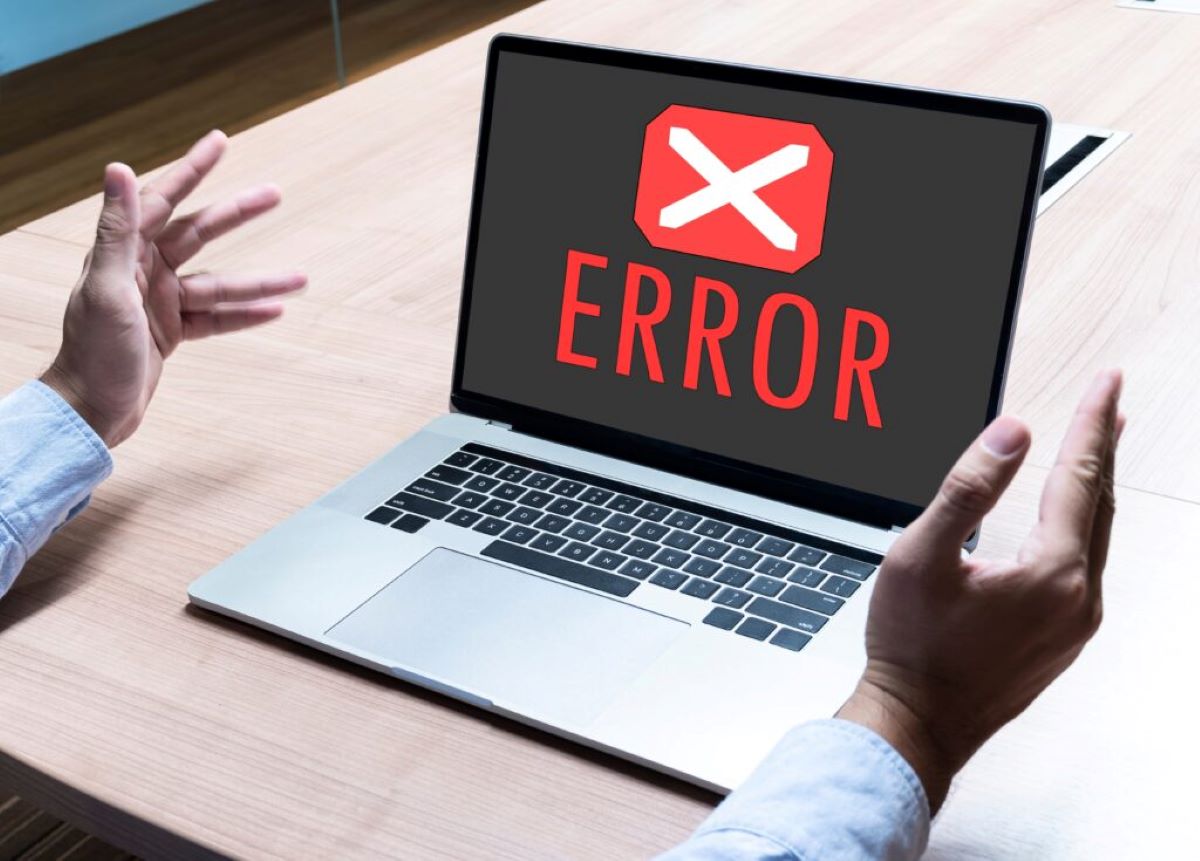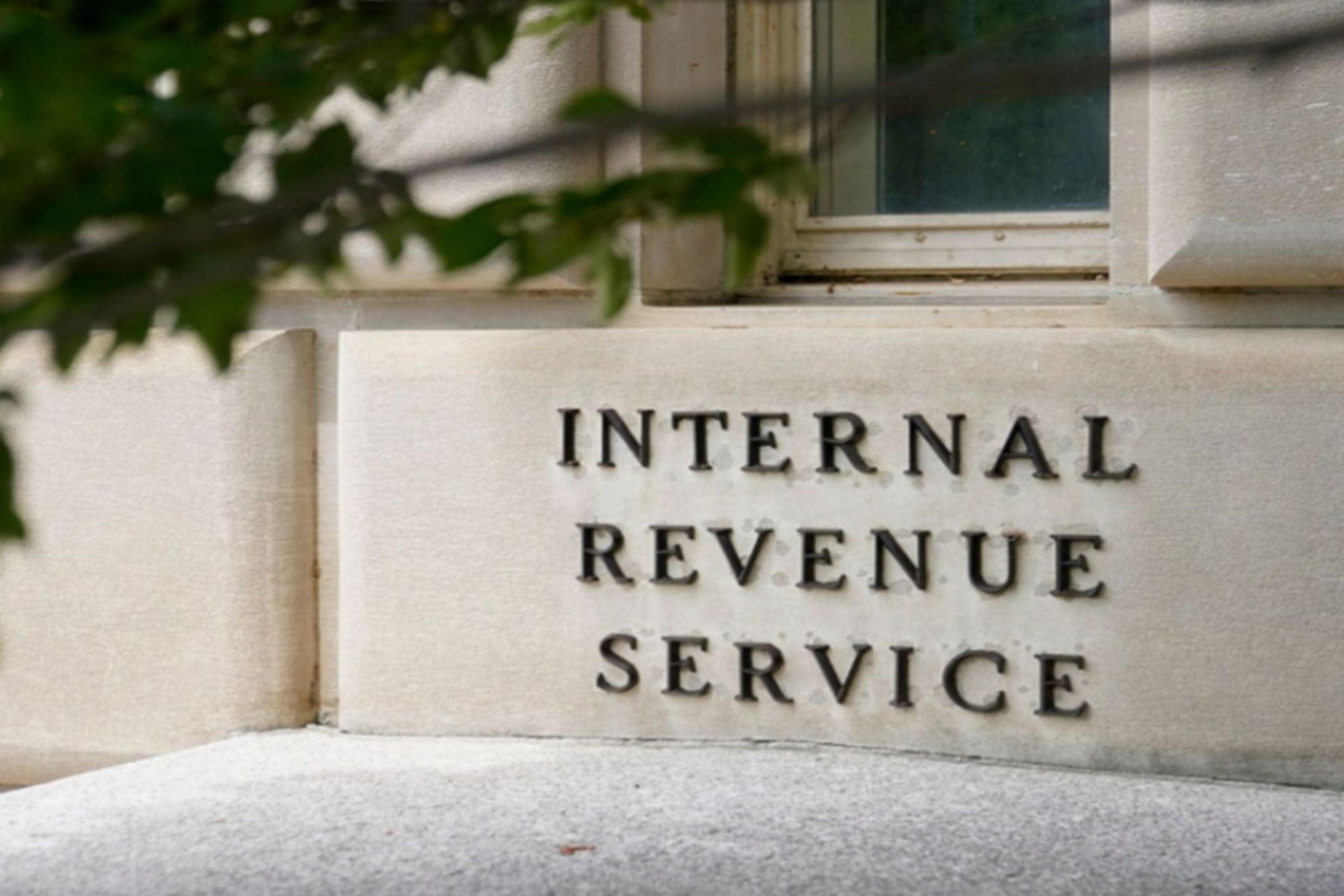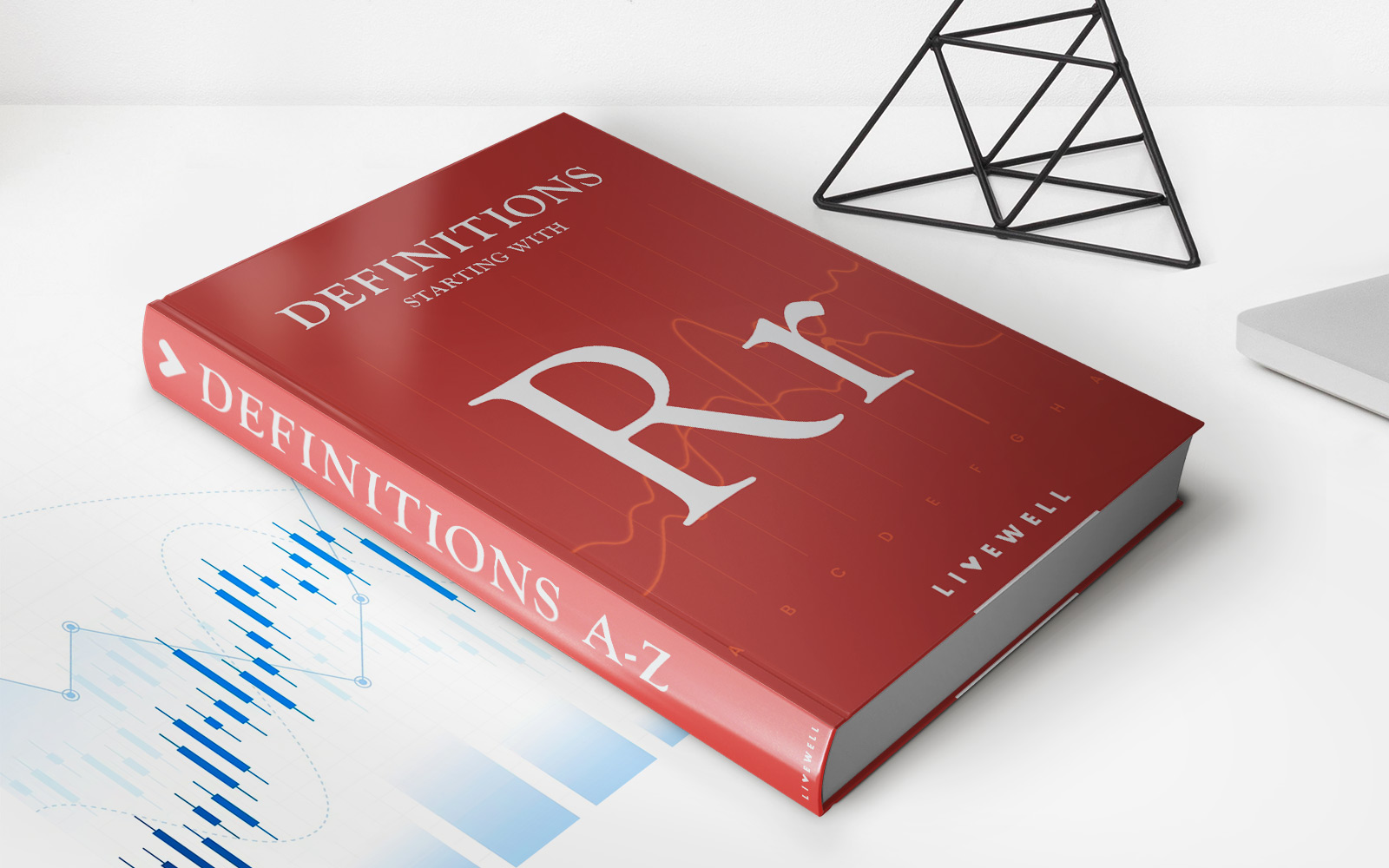

Finance
What Does Code 152 Mean From The IRS?
Published: October 31, 2023
"Discover the meaning behind IRS code 152 and its implications for your finances. Learn how to navigate this tax code and what it means for your financial situation."
(Many of the links in this article redirect to a specific reviewed product. Your purchase of these products through affiliate links helps to generate commission for LiveWell, at no extra cost. Learn more)
Table of Contents
Introduction
When it comes to navigating the complex world of taxes, understanding the various IRS codes and their meanings is crucial. One such code that often leaves taxpayers puzzled is Code 152. If you have ever seen Code 152 appearing on your tax return or received a notification from the IRS related to it, it’s essential to decipher its significance and implications.
Code 152 is specifically related to claiming dependents on your tax return. Dependents can include children, relatives, or individuals who rely on you for financial support. This code outlines the criteria and requirements for claiming these dependents, allowing you to potentially reduce your tax liability and increase your tax refund.
In this article, we will delve into the details of Code 152 and clarify its meaning. We will explore the eligibility requirements for claiming dependents, the limitations and exceptions associated with Code 152, and common issues that taxpayers encounter. By the end, you’ll have a comprehensive understanding of how Code 152 impacts your tax situation and how to handle it correctly.
Definition of Code 152
Code 152 is a specific IRS code that pertains to the eligibility and criteria for claiming dependents on your tax return. When you file your taxes, you have the option to claim individuals as dependents, which can result in valuable tax credits, deductions, and exemptions. Code 152 provides the guidelines for determining who can be claimed as a dependent and under what circumstances.
According to Code 152, there are two main categories of dependents that can be claimed on your tax return:
- Qualifying Child: A qualifying child must meet certain criteria set by the IRS in order to be claimed as a dependent. These criteria include relationship, age, residency, support, and dependency. For example, a qualifying child must be your child, stepchild, foster child, sibling, or a descendant of one of these individuals. They must also be under a certain age (typically under 19 or 24 if they are a full-time student), have lived with you for more than half of the year, not have provided more than half of their own support, and be financially dependent on you.
- Qualifying Relative: A qualifying relative can be someone who is not a qualifying child but still meets certain criteria to be claimed as a dependent. This can include elderly parents, siblings, aunts, uncles, and other relatives. The criteria for a qualifying relative include relationship, gross income, support, and dependency. For example, a qualifying relative must have less than a certain amount of gross income for the tax year, receive more than half of their financial support from you, and not be claimed as a dependent by anyone else.
By understanding the definition of Code 152, you can determine whether individuals in your life qualify as dependents and potentially maximize your tax benefits. However, it is essential to gather the necessary documentation and evidence to support your claims, as the IRS may request proof of these relationships and financial dependencies.
Eligibility Requirements for Code 152
Claiming individuals as dependents on your tax return can lead to valuable tax benefits, but it’s important to meet the eligibility requirements outlined in Code 152. These requirements determine who can be claimed as a dependent and under what circumstances. Understanding these criteria will help you determine if you qualify to claim someone as a dependent and ensure compliance with IRS regulations.
Here are the key eligibility requirements for Code 152:
- Relationship: To claim an individual as a dependent, you must have a qualifying relationship with them. This can include being the person’s child, stepchild, foster child, sibling, or a descendant of one of these individuals. For qualifying relatives, the relationship can be more broadly defined, including parents, grandparents, aunts, uncles, or other relatives.
- Age: The dependent must meet certain age requirements. For qualifying children, they usually must be under the age of 19 or under the age of 24 if they are a full-time student. However, there are exceptions for children with disabilities or certain other circumstances.
- Residency: The dependent must have lived with you for more than half of the tax year. Temporary absences, such as for education or medical treatment, are still considered residing with you.
- Support: You must provide more than half of the dependent’s financial support during the tax year. This can include expenses such as housing, food, education, medical care, and other necessities.
- Dependency: The dependent must be financially dependent on you and not providing more than half of their own support. They cannot claim their own personal exemption on their own tax return if you intend to claim them as a dependent.
Meeting these eligibility requirements ensures that you can claim someone as a dependent under Code 152. It’s important to gather the necessary documentation and evidence to support your claims, as the IRS may request proof of these relationships and financial dependencies.
Keep in mind that the eligibility requirements may vary depending on the tax year and any changes to the tax code. Consulting with a tax professional or referring to the IRS guidelines can provide you with the most accurate and up-to-date information for claiming dependents.
Claiming Dependents under Code 152
Code 152 outlines the rules and guidelines for claiming dependents on your tax return. By understanding these rules, you can determine whether you are eligible to claim someone as a dependent and potentially benefit from valuable tax credits, deductions, and exemptions. Here are the key steps to follow when claiming dependents under Code 152:
- Determine Eligibility: Review the eligibility requirements outlined in Code 152 to determine if you qualify to claim someone as a dependent. Consider factors such as the relationship, age, residency, support, and dependency of the individual you wish to claim. Ensure that you have the necessary documentation to support your claims, such as birth certificates, social security numbers, and financial records.
- File as Head of Household: If you meet certain criteria, such as being unmarried, paying more than half of the household expenses, and having a qualifying dependent, you may be eligible to file your taxes as the head of household. This filing status can provide you with higher standard deductions and potentially lower tax rates.
- Provide Dependent Information: When filling out your tax return, you will need to provide the necessary information about your dependent(s). This includes their full name, social security number, and relationship to you. Ensure that the information is accurate and matches their official records to avoid any discrepancies or issues with the IRS.
- Claim Dependency Exemption: When claiming a dependent under Code 152, you may be eligible for a dependency exemption, which can reduce your taxable income. The dependency exemption amount varies from year to year, so be sure to check the IRS guidelines for the specific tax year you are filing.
- Claim Tax Credits: Depending on the eligibility of your dependent(s), you may be eligible for various tax credits such as the Child Tax Credit or the Earned Income Tax Credit. These credits can provide significant financial benefits, so be sure to explore all available options and determine your eligibility.
- Keep Records: It is crucial to keep accurate and organized records of your dependent’s information and supporting documents. This includes birth certificates, social security cards, school records, and any other relevant documents that verify their relationship, residency, and financial dependency. These records will be invaluable in case of an IRS audit or any inquiries regarding your dependent claims.
By following these steps and adhering to the guidelines set forth in Code 152, you can successfully claim dependents on your tax return and potentially save money on your tax bill. However, it’s always advisable to consult with a tax professional or refer to the IRS resources for specific instructions and any updates to the tax code.
Limitations and Exceptions of Code 152
While Code 152 provides guidelines for claiming dependents on your tax return, it’s important to be aware of the limitations and exceptions that may apply. Understanding these limitations will help ensure accurate and compliant filing. Here are some key limitations and exceptions to consider under Code 152:
- Married Filing Separately: If you and your spouse are filing separate tax returns and you lived together with your dependents, both of you cannot claim the same dependent. You should agree and coordinate on which spouse will claim the dependent(s) to avoid any discrepancies and potential audits.
- Divorced or Separated Parents: In cases of divorced or separated parents, the custodial parent is generally entitled to claim the child as a dependent. However, there may be situations where the non-custodial parent can claim the child if certain conditions are met, such as a written agreement or court order. It’s important to understand the specific rules regarding claiming dependents in your situation and follow them accordingly.
- Multiple Support Agreements: Sometimes multiple individuals may contribute to the financial support of a dependent. If such a situation arises, Code 152 allows for a “Multiple Support Agreement” where one person can claim the dependent as long as they meet the support test and the other contributors waive their right to claim. This requires coordination and agreement among all parties involved.
- Dependency Test Exceptions: Certain exceptions exist for dependents who meet certain conditions, even if they don’t meet the strict dependency test outlined in Code 152. For example, parents of college students may be able to claim their child as a dependent even if the child provides more than half of their own support, as long as the parents are still providing financial aid according to a higher education agreement.
- Identifying Information Errors: Ensure that the information you provide about your dependents is accurate and matches their official records, such as social security numbers and dates of birth. Any errors or discrepancies in this information can raise red flags with the IRS and potentially result in delays or audits.
- Child Tax Credit Phase-Out: The Child Tax Credit is subject to income limitations. If your income exceeds a certain threshold, the amount of credit you can claim may be reduced or eliminated. Be sure to review the IRS guidelines to determine if you qualify for the full credit or if any limitations apply.
These limitations and exceptions highlight the importance of understanding the specific circumstances surrounding your dependents and following the rules and regulations outlined in Code 152. It’s advisable to consult with a tax professional or refer to the IRS resources for any uncertainties or complex situations.
Common Issues and Errors with Code 152
While claiming dependents under Code 152 on your tax return can provide valuable tax benefits, there are common issues and errors that taxpayers often encounter. Being aware of these pitfalls will help you avoid mistakes and ensure accurate filing. Here are some of the common issues and errors associated with Code 152:
- Inaccurate or Missing Social Security Numbers: One of the most common errors is providing incorrect or missing Social Security numbers for dependents. Make sure to double-check and accurately enter these numbers, as the IRS relies on them for identity verification and proper credit allocation.
- Dependency Conflicts: In cases where multiple family members or ex-spouses are claiming the same dependent, conflicts can arise. Ensure proper communication and coordination to avoid issues and potential audits. Keep records of any agreements or court orders that determine who is entitled to claim the dependent.
- Support Test Requirements: Meeting the financial support test outlined in Code 152 can be challenging, especially when multiple individuals contribute to a dependent’s support. Carefully calculate and document your contributions to meet the requirements and be aware of exceptions and multiple support agreements.
- Dependent’s Age and Student Status: It’s important to be aware of the age and student status requirements for claiming dependents under Code 152. A common mistake is continuing to claim a child who has exceeded the age limit or is no longer a full-time student. Stay updated on the IRS guidelines and adjust your claims accordingly.
- Lack of Documentation: The IRS may request supporting documentation to verify your dependent claims, such as birth certificates, residency records, or school enrollment documents. Failing to provide the necessary documentation when requested can lead to denied claims or audits. Keep accurate records to substantiate your claims.
- Invalid Relationship: Ensure that the individuals you claim as dependents meet the specific relationship requirements outlined in Code 152. Mistakenly claiming someone as a dependent who does not qualify could result in penalties or inaccurate tax returns.
- Failing to Update Dependents: Life circumstances may change, such as a child becoming independent or a relative no longer meeting the dependent criteria. It is important to regularly reassess and update your dependents to accurately reflect your current situation and avoid potential discrepancies.
By avoiding these common issues and errors, you can ensure accurate and compliant filing when claiming dependents under Code 152. Keeping meticulous records and seeking guidance from a tax professional when needed can help mitigate these challenges and provide peace of mind during tax season.
Frequently Asked Questions (FAQs)
Here are some frequently asked questions related to Code 152 and claiming dependents:
-
Can I claim my child as a dependent if they are away at college?
Yes, you may still be able to claim your child as a dependent if they are away at college, as long as they meet the other eligibility requirements outlined in Code 152. They must have lived with you for more than half of the year, be under a certain age limit (typically under 19 or 24 if a full-time student), and not provide more than half of their own support.
-
Can I claim a relative as a dependent if they don’t live with me?
Yes, you may be able to claim a relative as a dependent even if they don’t live with you, as long as they meet the other eligibility requirements. The residency requirement can be satisfied if the relative is considered to have lived with you for temporary absences, such as for education or medical treatment.
-
Can both parents claim the same child as a dependent?
No, only one parent can claim a child as a dependent per tax year. In cases of divorced or separated parents, the general rule is that the custodial parent (the parent with whom the child lives for the majority of the year) is entitled to claim the child. However, exceptions may apply based on specific agreements or court orders.
-
What documentation do I need to support my dependent claims?
To support your dependent claims, it is important to keep accurate records and documentation. This may include birth certificates, social security numbers, school records, and any other relevant documents that can establish the relationship, residency, and financial dependency of your dependents. Be prepared to provide this documentation if requested by the IRS.
-
What if someone else claims my dependent without my permission?
If someone else claims your dependent without your permission and you believe you are entitled to claim them, you should be prepared to demonstrate to the IRS that you meet the eligibility requirements outlined in Code 152. Keep documentation and records to support your claim, and be prepared to engage in an IRS review or audit if necessary.
These FAQs provide answers to some common queries related to Code 152 and claiming dependents. However, it is essential to consult with a tax professional or refer to the IRS resources for specific guidance based on your unique circumstances.
Conclusion
Navigating the intricacies of tax codes can be overwhelming, but understanding Code 152 and its implications for claiming dependents is essential. By meeting the eligibility requirements and properly documenting your claims, you can potentially benefit from valuable tax credits, deductions, and exemptions.
In this article, we explored the definition of Code 152 and how it relates to claiming dependents on your tax return. We discussed the eligibility requirements, including the relationship, age, residency, support, and dependency criteria. We also highlighted the limitations and exceptions, as well as common issues and errors that taxpayers often encounter.
By following the guidelines set forth in Code 152, you can ensure accurate and compliant filing while maximizing your tax benefits. It is crucial to keep meticulous records, gather the necessary documentation, and seek the guidance of a tax professional if needed. Staying informed about any updates to the tax code and IRS regulations is also vital to maintain compliance.
Remember, claiming dependents under Code 152 requires careful consideration and attention to detail. By understanding the rules, meeting the requirements, and avoiding common errors, you can confidently navigate the complexities of tax filing and potentially reduce your tax liability.
For specific and personalized guidance, it is always advisable to consult with a tax professional or refer to the official IRS resources.














